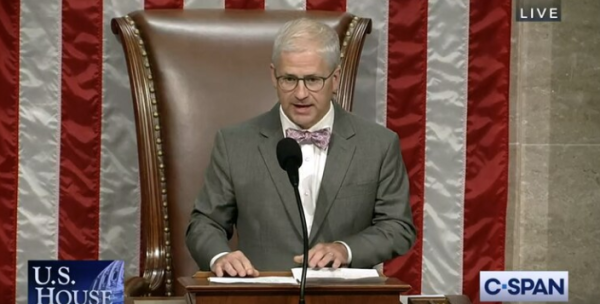
Greece marks the 3rd best climate performance in Europe in the areas under the Emissions Trading Scheme (ETS) according to the new analysis of Green Tank in view of the expected revision of the Pollution Directive under the “fit for 55” legislative package .
The rapid reduction of lignite production is decisive, while the emissions of the industry remained stagnant.
In this analysis, entitled “Trends in the Emissions Trading Scheme in the European Union and Greece”, Green Tank examines what has happened since the establishment of the Emissions Trading Scheme (ETS) in 2005 until today.
Utilizing the official data of the European Commission and the European Environment Agency, the changes in greenhouse gas emissions in electricity & heat production, industry and air transport during the first three phases of the ETS (2005-2020) at national and European level are analyzed.
The results of the analysis for the first 15 years of operation of the ETS show the effectiveness of the tool in reducing greenhouse gas emissions, which could be even greater if such a large number of free emission allowances were not distributed to Europe’s energy-intensive industries.
The pandemic has reduced industry emissions in the EU
In particular, the analysis of the data at European level shows that:
· ETS emissions fell by 42.3% from 2005 to 2020, slightly lower than the previous EU target for 2030 (-43%), highlighting the low ambition shown by the EU so far and the potential of ETS to contribute to climate progress.
· The decrease was achieved mainly due to the large drop in emissions in the field of electricity & heat production and mainly lignite and coal, while industry emissions remained almost constant for the entire period due to the number of free emission allowances allocated to it.
An exception is the last year of the pandemic during which, in addition to electricity generation, there was a significant reduction in industry and aviation.
Emissions in Greece decreased by 56.3%
· It had the third best performance in the EU as the emissions of the ETS sectors decreased by 56.3% in 2020 compared to 2005. Only Denmark (-58.3%) and Estonia (-56.4%) had slightly better performance.
· The decrease is largely due to the contraction of lignite power generation especially in the last two years, which in 2020 emitted 14 million tons less CO2 compared to 2018. Thus in 2020 Greece showed the largest percentage reduction in emissions from solid minerals fuels among EU lignite-producing countries compared to 2005 (-78.9%).
· However, the reduction of lignite emissions was accompanied by an increase in fossil gas emissions (+ 44% in 2020 compared to 2013) but also by the appearance of fossil gas units in the list of the 10 largest polluters in Greece, in 2020, for for the first time since the beginning of the 3rd phase of SEDE in 2013.
· 2020 was the first year that emissions from the energy-intensive industry (11.5 million tons) exceeded those from lignite (9.2 million tons).
“The de-lignification is pushing the country to the climatic vanguard. However, in order to consolidate climate progress, Greece must limit the use of fossil gas and actively support the green shift of energy-intensive industry. “In the forthcoming revision of the ETS Directive, courageous reforms are needed that will make a decisive contribution to reducing clean greenhouse gas emissions by at least 55% by 2030 compared to 1990, not only at European but also national level.” Nikos Mantzaris, policy analyst for The Green Tank think tank.
Latest News

Airbnb: Greece’s Short-Term Rentals Dip in March Amid Easter Shift
Data from analytics firm AirDNA shows that average occupancy for short-term rentals dropped to 45% in March, down from 49% the same month last year.

Easter Week in Greece: Holy Friday in Orthodoxy Today
At the Vespers service on Friday evening the image of Christ is removed from the Cross and wrapped in a white cloth

Meloni and Trump Meet in Washington, Vow to Strengthen Western Ties
“I am 100% sure there will be no problems reaching a deal on tariffs with the EU—none whatsoever,” Trump stressed.

ECB Cuts Interest Rates by 25 Basis Points in Expected Move
The ECB’s Governing Council opted to lower the deposit facility rate—the benchmark for signaling monetary policy direction—citing an updated assessment of inflation prospects, the dynamics of underlying inflation, and the strength of monetary policy transmission.

Current Account Deficit Fell by €573.2ml Feb. 2025: BoG
The improvement of Greece’s current account was mainly attributed to a more robust balance of goods and, to a lesser extent, an improved primary income account

Hellenic Food Authority Issues Food Safety Tips for Easter
Food safety tips on how to make sure your lamb has been properly inspected and your eggs stay fresh.

Greek Kiwifruit Exports Smash 200,000-Ton Mark, Setting New Record
According to data by the Association of Greek Fruit, Vegetable and Juice Exporters, Incofruit Hellas, between September 1, 2024, and April 17, 2025, kiwifruit exports increased by 14.2%.

Easter Tourism Boom: Greece Sees 18.3% Surge in Hotel Bookings
Among foreign markets, Israel has emerged as the biggest growth driver, with hotel bookings more than doubling—up 178.5% year-on-year.

Greece to Launch Fast-Track Tender for Offshore Hydrocarbon Exploration
Last week, Papastavrou signed the acceptance of interest for the two Cretan blocks, while similar decisions regarding the two Ionian Sea blocks were signed by his predecessor

American-Hellenic Chamber of Commerce to Open Washington D.C. Branch
AmCham's new office aims aims to deepen U.S.-Greece economic ties and promote investment and innovation between the two countries







![Πλημμύρες: Σημειώθηκαν σε επίπεδα ρεκόρ στην Ευρώπη το 2024 [γράφημα]](https://www.ot.gr/wp-content/uploads/2025/04/FLOOD_HUNGRY-90x90.jpg)




![Airbnb: Πτωτικά κινήθηκε η ζήτηση τον Μάρτιο – Τι δείχνουν τα στοιχεία [γράφημα]](https://www.ot.gr/wp-content/uploads/2024/07/airbnb-gba8e58468_1280-1-90x90.jpg)

























![Airbnb: Πτωτικά κινήθηκε η ζήτηση τον Μάρτιο – Τι δείχνουν τα στοιχεία [γράφημα]](https://www.ot.gr/wp-content/uploads/2024/07/airbnb-gba8e58468_1280-1-600x500.jpg)


 Αριθμός Πιστοποίησης
Αριθμός Πιστοποίησης